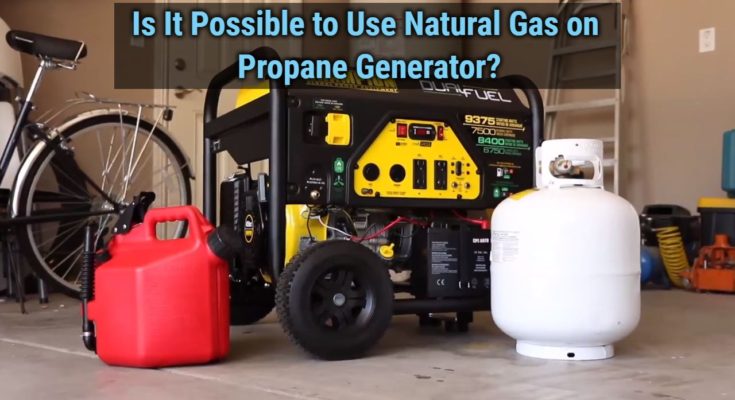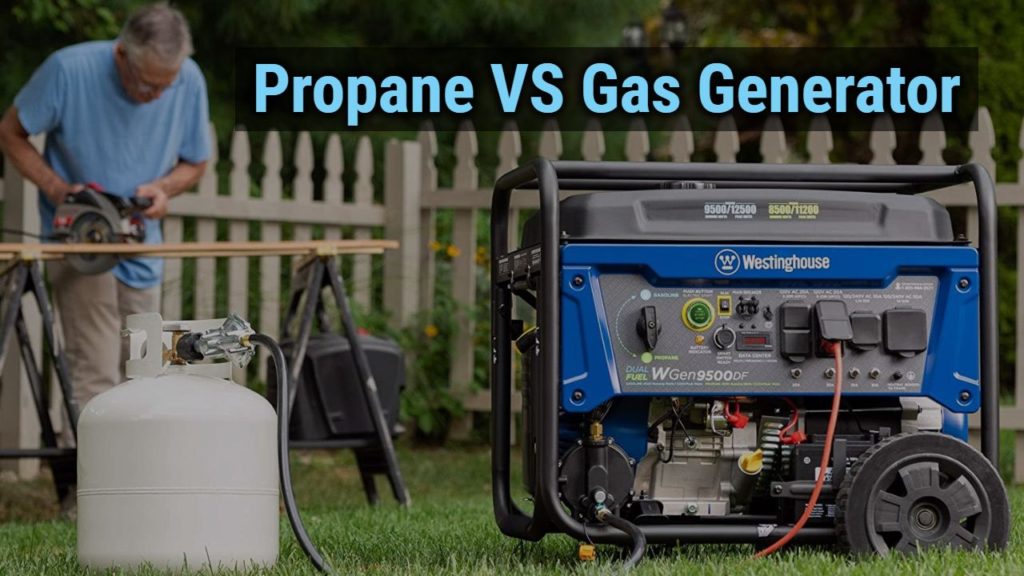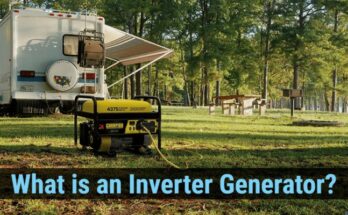A generator is essential when you face frequent power outages or live in a disaster-prone area, and it can keep your essentials running. There are generally four main fuel types to choose from, and your unit can run on gasoline, diesel, propane, or natural gas.
Most people will rely on their fuel storage to get through an extended power outage. But sometimes, that is not enough if an outage stays for long.
For a propane generator, you will have 2 to 3 cylinders stored, which might give you a few days of electricity, but due to natural disasters, delivery of cylinders may not be possible, so you will be without electricity after that. There is a solution for that, natural gas.
Natural gas will be available at your house continuously through pipelines, so if you convert your propane generator to natural gas generator, then there will be no need for fuel storage. You can directly connect your gas line to the generator and will have an unlimited electrical supply.
If you go with the natural gas generator in the first place, then you won’t have portability because they are not available around the corner. So, the second-best option is conversion.
In this post, we will discuss the conversion of propane generators to natural gas with its advantages and disadvantages. So, keep reading.
Table of Contents
Difference Between Propane and Natural Gas
First, know that natural gas is a fossil fuel. When it is extracted, it is composed of many gases like butane, methane, and also propane. Propane is a by-product of natural gas which gets extracted during the refining process.
If we talk about the delivery, then propane will be available in tanks which will need periodic replacement, while natural gas is available directly at the house via pipelines. Propane containers are available in different sizes, and if you like, you can install bigger underground tanks at your house. You can place it on the top, but it will make the view less attractive.
Propane is delivered as tanks. So, after a natural disaster, it might be difficult to get a delivery, and you will be without fuel. Whereas natural gas, due to its availability through pipelines, will always be accessible.
In terms of price point, propane costs more than natural gas, but the propane will release more energy than what natural gas does; however, the cost may vary based on the geographic location. Propane is available in liquid form, and it is compressed and stored in a cylinder.
That is why it is measured in gallons or liters. On the other hand, natural gas will be in gas form and is measured in cubic feet or cubic meters.
It is a well-known fact that natural gas and propane both are clean fuels; they release very little toxins into the environment. But natural gas is more harmful than propane if and only if there is a leak somewhere on the pipeline.
Natural gas is generally made up of methane, which breaks down to carbon dioxide, the greenhouse gas, on its own. But it will take several years for that to happen.
Propane and natural gas both are colorless and odorless gases. So, to identify the leak, they add some other gas like mercaptan, which gives it the smell of a rotten egg or sulfur, so it becomes easy to detect. If you suspect that there is a leak, then evacuate the house, don’t turn on or off any electronics or switches, and call 911.
How You Can Convert a Propane Generator to Natural Gas?
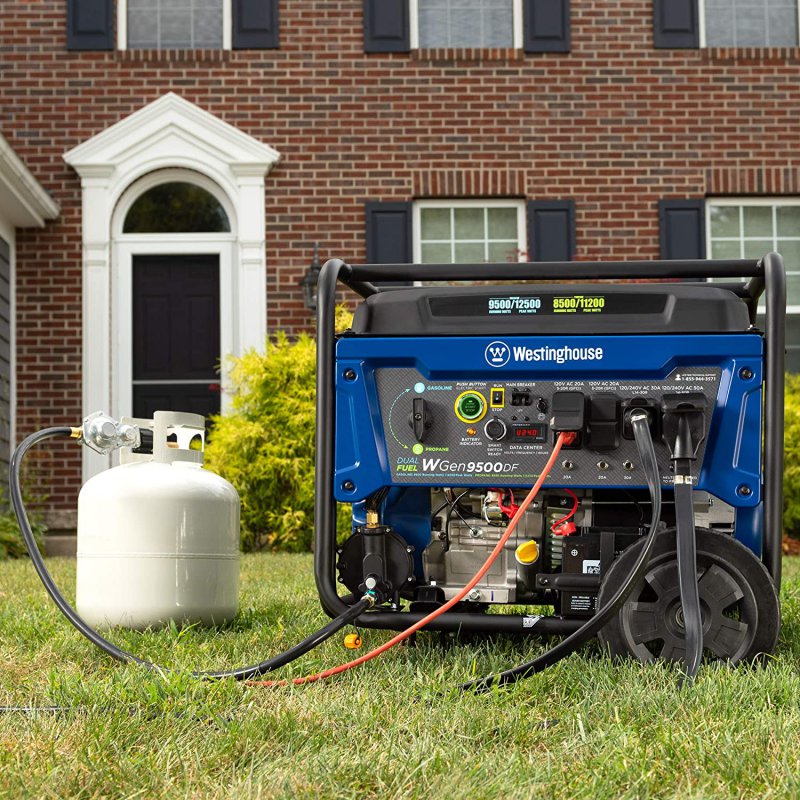
Propane is available in liquid form, but it gets converted to the gaseous form when it is released from the tank. In this form, there is not much difference between natural gas and propane.
So, the conversion is a simple process; there is nothing much complicated that needs to be done. You will need a generator conversion kit to complete the process. It will include a new gas hose, clamps, wrench, and screwdriver.
Once you have gathered all these things, you will need to remove the existing fuel pipe, which supplies propane and is connected to the carburetor, using a screwdriver. Now attach the new hose to the existing empty place of the removed propane hose and tighten it with the screwdriver.
Then after the other end of the new hose will need to be connected to the natural gas line via a gas meter. Identify the extension and connect the other end using a connector. And seal it with a clamp. When everything is done, you can start the generator.
Benefits of This Conversion
It is a simple process, the conversion of a propane generator to run on natural gas. Plus, there are many benefits associated with it.
The first is the unlimited fuel supply and hassle-free operation. You will have to replace the propane cylinders when it gets depleted, but with natural gas, there is no need for that. Also, you won’t have to store the natural gas in large quantities as a backup.
When propane is stored in large quantities, you will need to be careful. If a propane cylinder leaks, there will be a risk of fire which will spread very quickly. This is due to the fact that propane is compressed inside a bottle, so it will be released faster than natural gas.
This leakage problem is also there with natural gas, but it is lighter than the air, which means it will quickly move away, reducing the risk of fire. This makes natural gas safer than propane.
Other than that, you will save on your energy bills as natural gas costs less than propane. You won’t have to pay for the cylinders and their delivery, but you will have a direct connection at the house, which makes the delivery of natural gas much easier.
Why You Shouldn’t Do the Conversion?
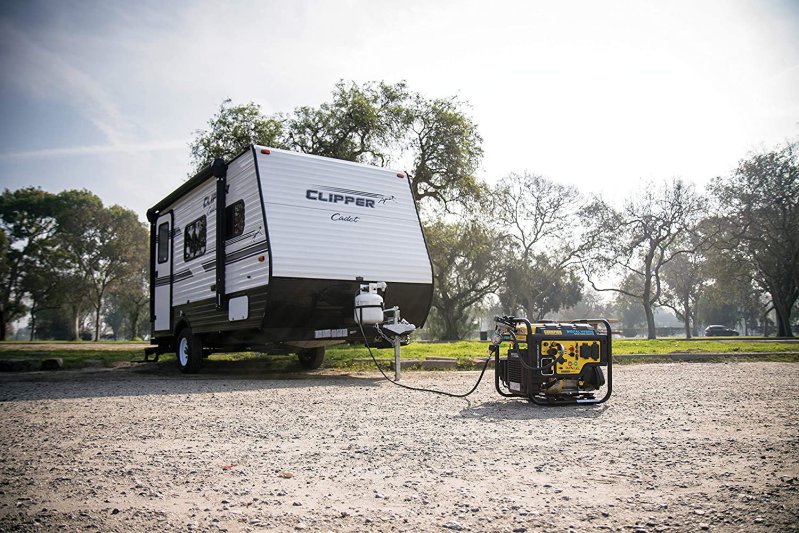
There are few reasons why it is not a good idea to convert the propane generator to natural gas. If you have installed a custom underground tank to store a large quantity of propane, then it will be of no use. You can either leave it there or take it out. It will be a difficult task to dig out the tank from the ground, and if you are lucky, you may find a buyer for it; otherwise, it will sit there occupying space.
Another disadvantage is the unavailability of natural gas if there is an earthquake. There are high chances of underground pipelines getting damaged. So you won’t have natural gas at home.
Other than that, since it is only available at one site, it limits the portability of a generator. If you frequently go camping and bring your portable generator with you, then it will no longer be possible when you convert your generator to natural gas. You can make it portable by again converting it to propane, but it needs to be done every time you decide to go camping.
If there is a leakage somewhere along the pipe, then it will be hard to locate it, and a massive amount of natural gas will go to waste. On the other hand, propane will have a limited amount in a tank, so you won’t only lose what is in the cylinder.
The conversion is a good idea if you already have a natural gas connection at the house; otherwise, there will be an installation cost for that. One more thing, natural gas is not as powerful as propane. It releases less heat, so the power output will decrease.
Conclusion
Natural gas and propane both have their advantages and disadvantages, so it’s your choice whether you want to convert your generator from propane to natural gas or not. It should be clear by now as you have read through the benefits and disadvantages of the conversion.
The use of natural gas will be more economical than propane, and if you already have a natural gas connection, then this will be a good idea. Moreover, this is a simple process, and it doesn’t involve any completed steps, so you will be able to complete it in an hour or two. Also, to avoid this problem altogather, you can use dual-fuel generators.

